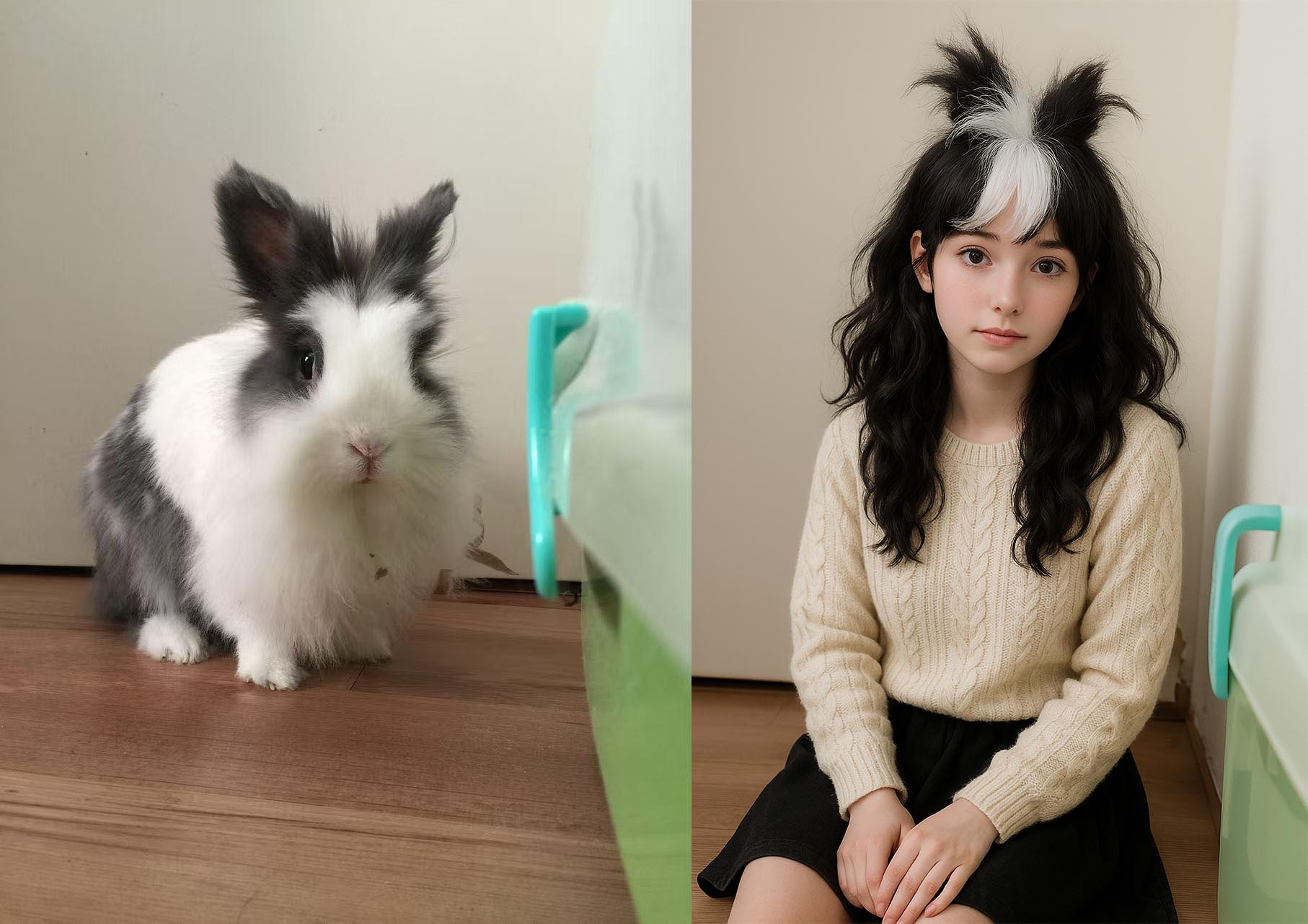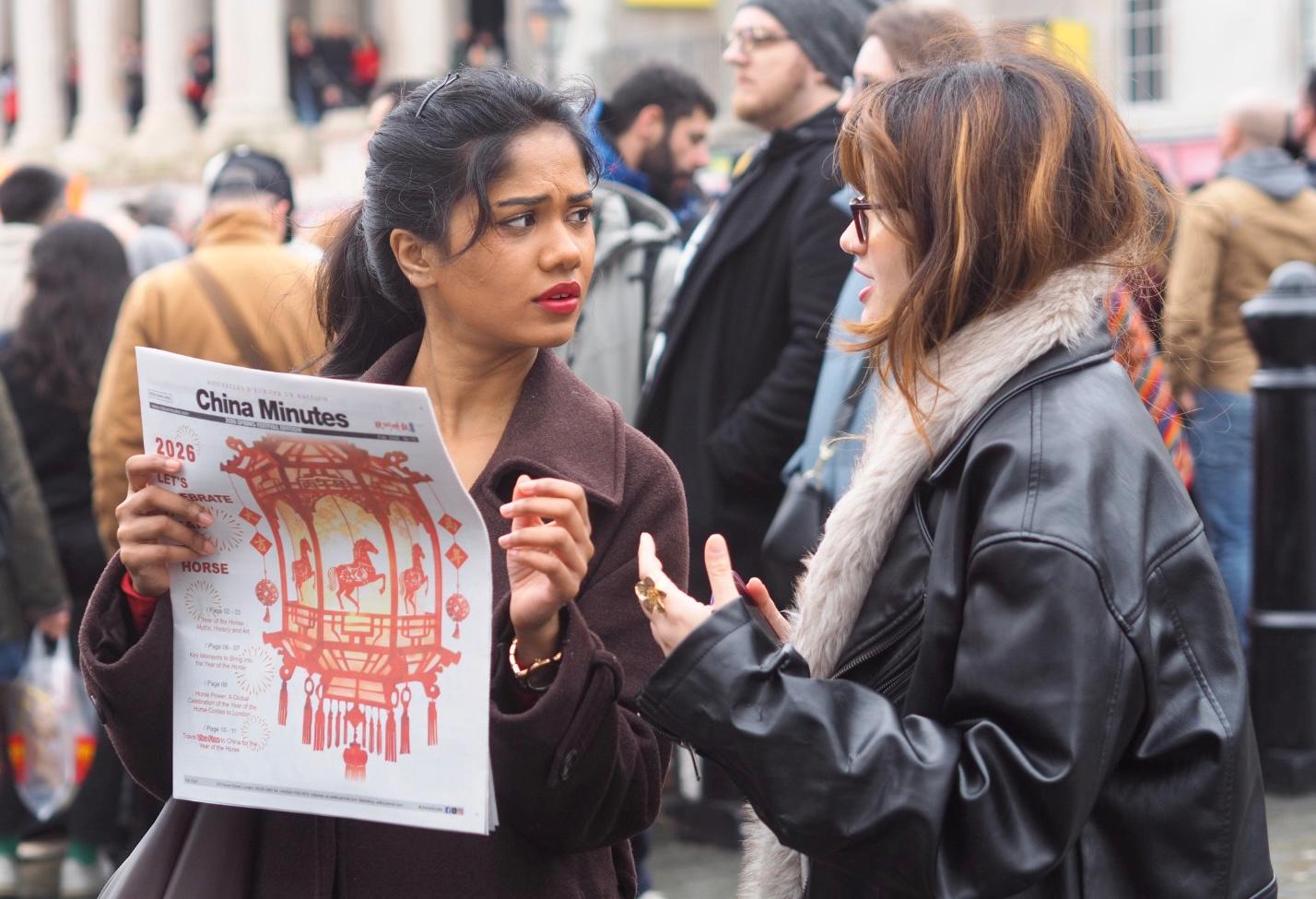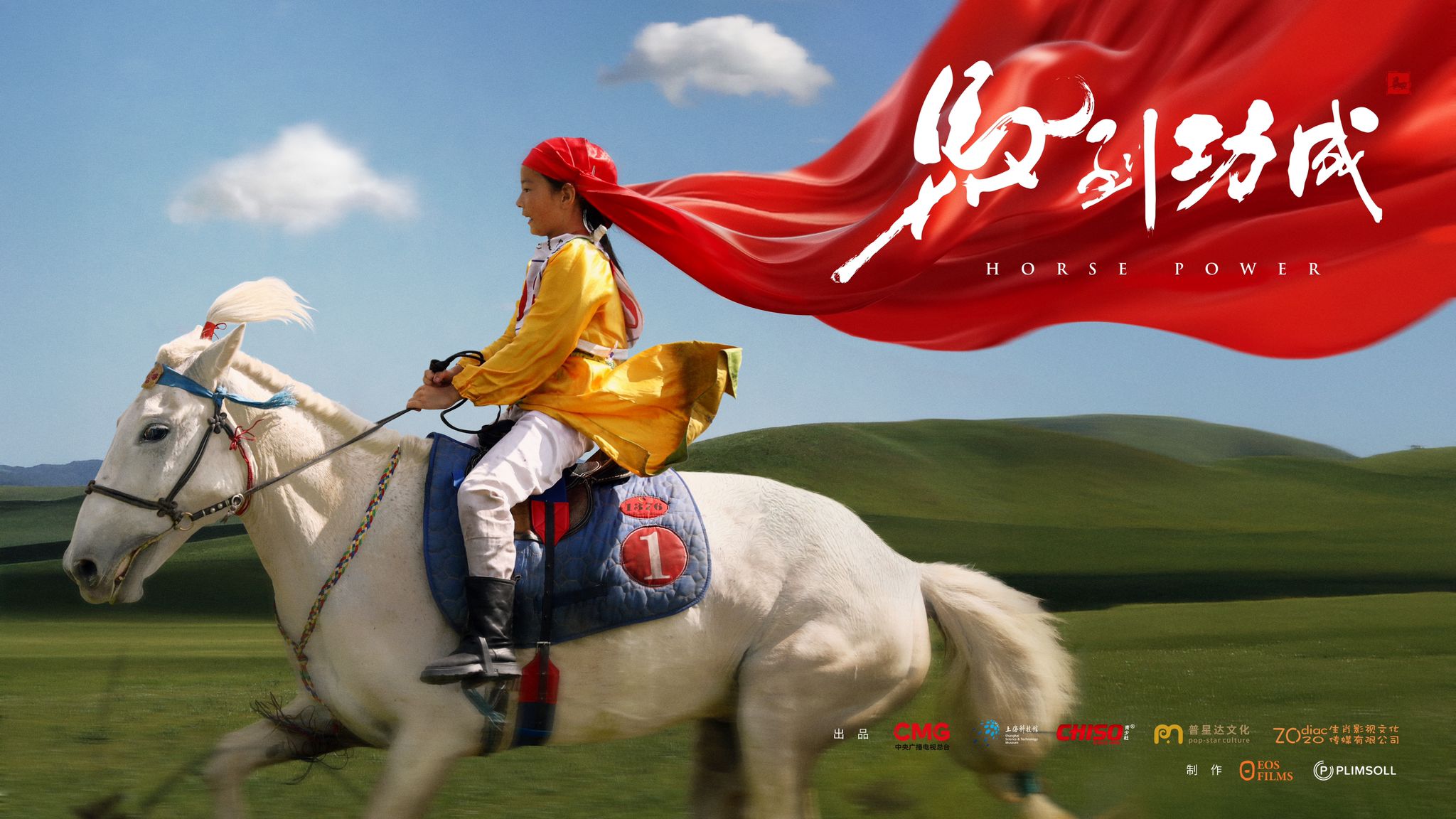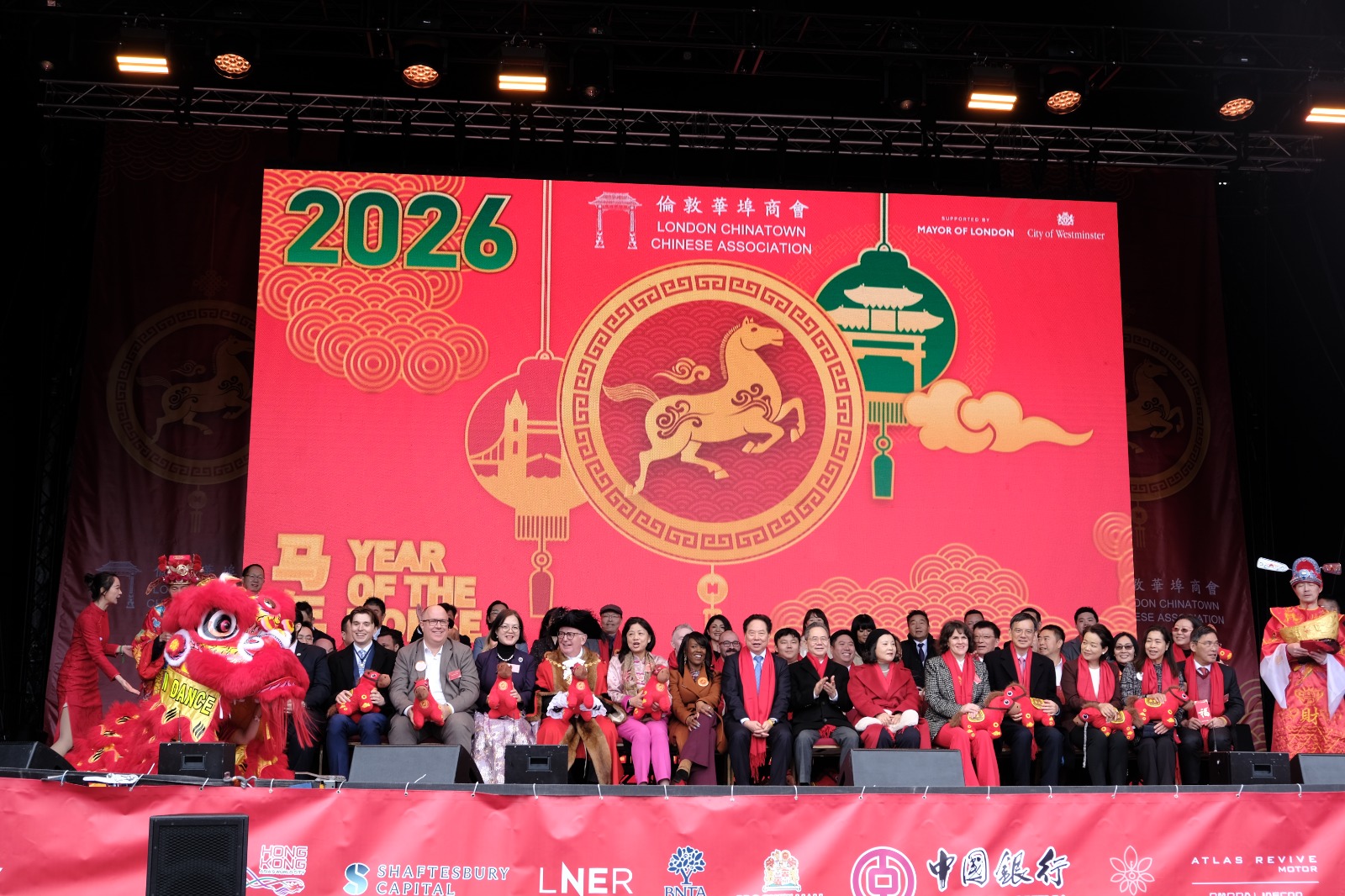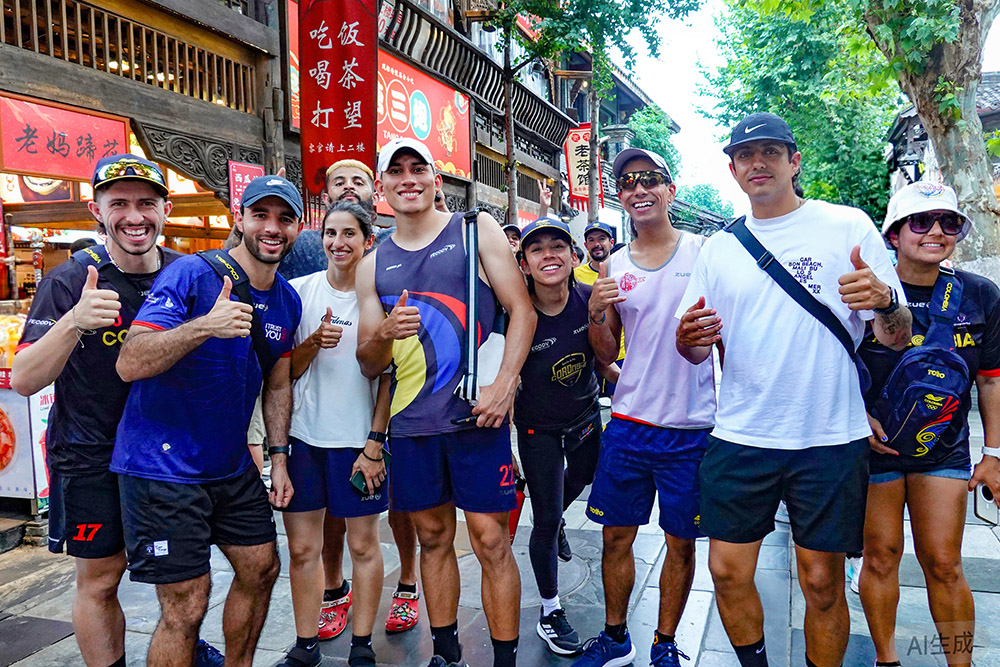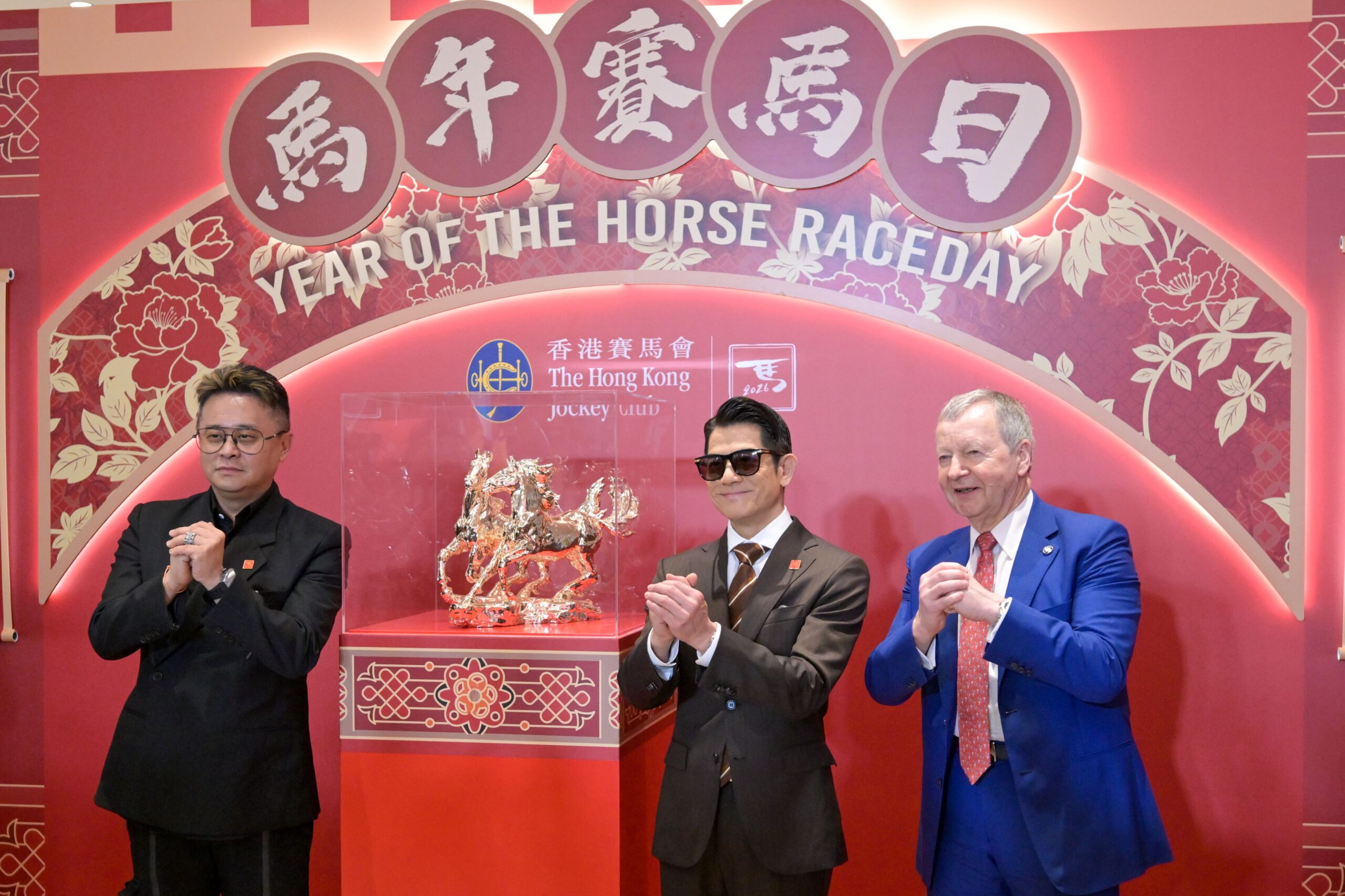AI pet to human photo trends have been taking over the Chinese internet as people turn their fluffy friends into humans using AI tools.
A curious trend has been gaining momentum on Chinese social media in recent days as pet owners are using artificial intelligence tools to create human versions of their animals.
These AI pet to human photos are created with AI tools using cues like breed, fur pattern, and facial structure to create imagined human avatars. A long-haired rabbit might become a whimsical young woman with flowing curls. A fluffy white dog could turn into a motorbike model. However, not every transformation looks flattering. One cat’s image turned into a scruffy, middle-aged man. The owner joked: “Turns out I’ve been living with a beer-bellied slob all along.”
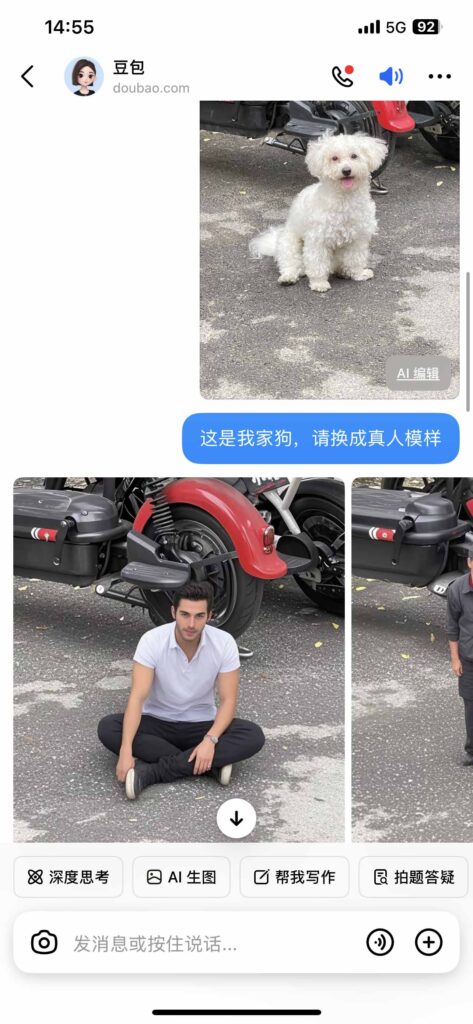
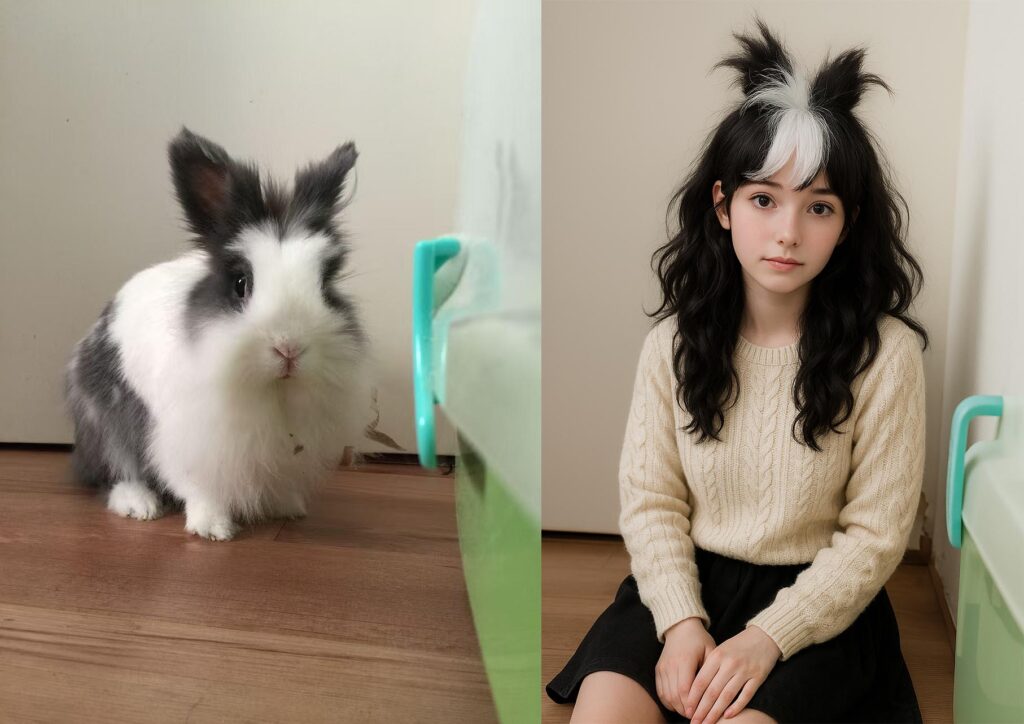
Beneath the humour lies a more telling truth. The desire to humanise pets reflects a broader cultural shift in China. For many young people, pets are not simply companions but genuine members of the family. As a result, the country’s pet economy has seen rapid growth in recent years. It is driven largely by a younger, urban demographic investing time, money, and emotion into animal care.
One part of the pet economy that has grown is pet fashion. Owners are spending hundreds, sometimes thousands, of yuan on bespoke clothing for their animals — ranging from traditional Chinese outfits to trendy streetwear. In some cases, they commission “matching looks” so that pet and owner can step out in coordinated ensembles. “It’s the Hermès of the dog world,” joked one Xiaohongshu user, referring to a luxury coat tailored for a toy poodle.
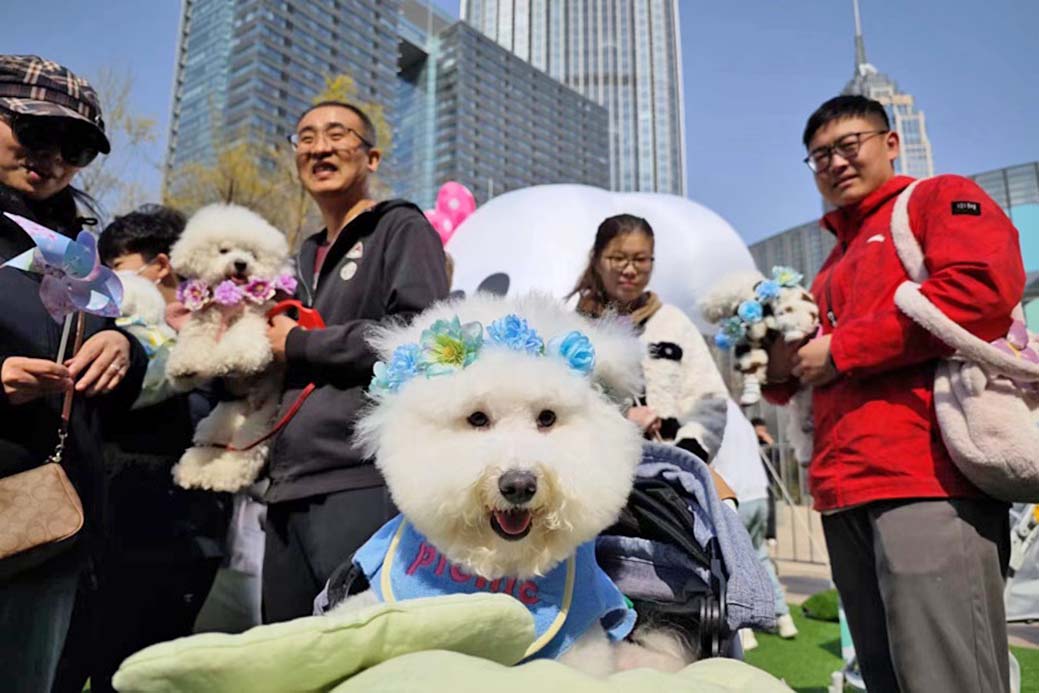
The attention to detail also extends beyond fashion. Pet birthday cakes, miniature pizzas, and delicately made egg tarts are also now common in an increasing number of households. “It’s not just about nutrition,” said one insider from the pet industry. “It’s about experience, celebration, and making memories.”
Wellness services for pets are becoming increasingly popular also. Some pets now enjoy massages, aromatherapy, and even acupuncture. A black Shiba Inu named Manyu found fame after a video of her receiving a spa session — complete with calming music and herbal compresses — went viral on Douyin, the Chinese version of TikTok.
Although the AI trend may appear to be little more than a playful distraction, it points to a deeper reality about modern urban life in China. For many young people, pets now occupy emotional roles once held by family members, romantic partners, or even children. They are not merely animals — they are also family, confidants, and, in many cases, reflections of the owners themselves.
If you liked this article, why not read: Fur-st Class Travel: China’s High-Speed Rail Welcomes Pets

